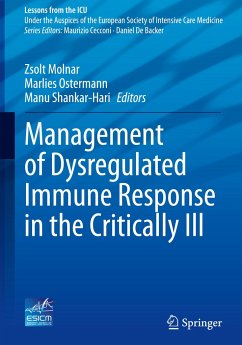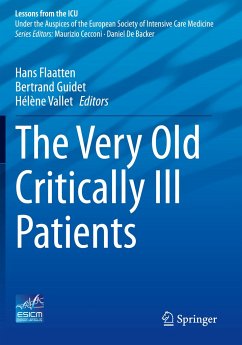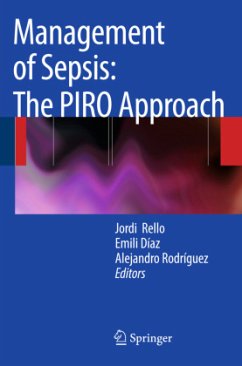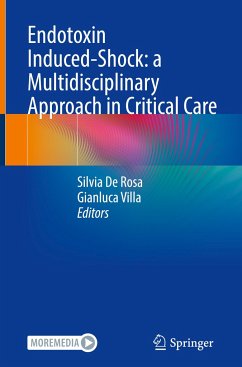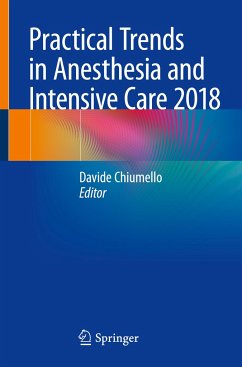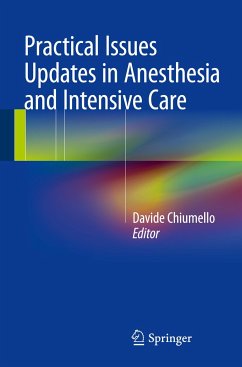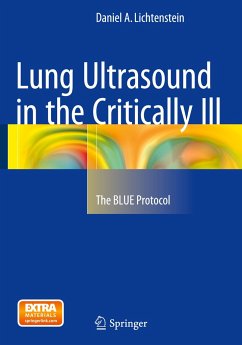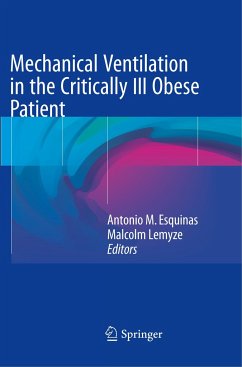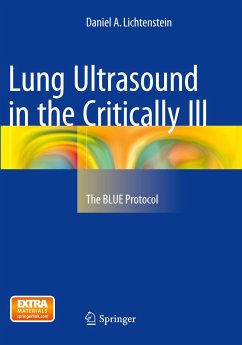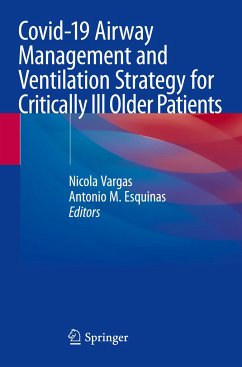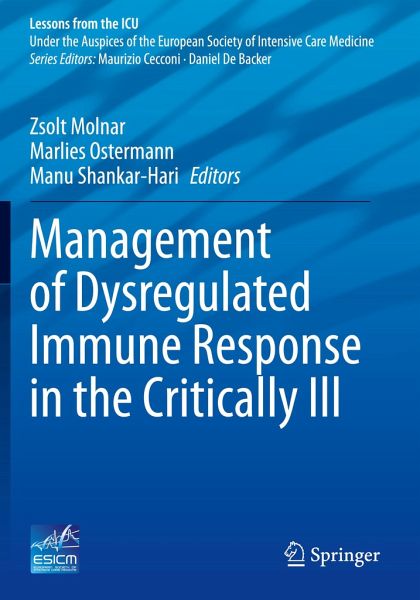
Management of Dysregulated Immune Response in the Critically Ill
Versandkostenfrei!
Versandfertig in 6-10 Tagen
49,99 €
inkl. MwSt.

PAYBACK Punkte
25 °P sammeln!
This book, part of the European Society of Intensive Care Medicine (ESICM) textbook series, deals with dysregulated host response a relatively new term introduced by the Sepsis-3 definitions in 2016. In contrast to systemic inflammatory response syndrome (SIRS) that has been used for nearly 30 years, this is a fundamentally new concept, which requires some sort of a paradigm shift in the way of thinking of critical care physicians. This change obviously requires time and after 5 years, time is ripe to summarize the knowledge in the form of a comprehensive book.The book is split in 4 sections. ...
This book, part of the European Society of Intensive Care Medicine (ESICM) textbook series, deals with dysregulated host response a relatively new term introduced by the Sepsis-3 definitions in 2016. In contrast to systemic inflammatory response syndrome (SIRS) that has been used for nearly 30 years, this is a fundamentally new concept, which requires some sort of a paradigm shift in the way of thinking of critical care physicians. This change obviously requires time and after 5 years, time is ripe to summarize the knowledge in the form of a comprehensive book.
The book is split in 4 sections. In the first one, the host immune response is explained in 11 chapters, followed by the next part, summarizing the possible tools for assessment at the bedside. The third and the fourth parts focus on the effects of dysregulated immune response on vital organ function and on the possible ways of immunomodulation. Written by internationally acclaimed experts of the field, the bookis of value for all those intensivists and allied professionals working in ICUs.
The book is split in 4 sections. In the first one, the host immune response is explained in 11 chapters, followed by the next part, summarizing the possible tools for assessment at the bedside. The third and the fourth parts focus on the effects of dysregulated immune response on vital organ function and on the possible ways of immunomodulation. Written by internationally acclaimed experts of the field, the bookis of value for all those intensivists and allied professionals working in ICUs.



